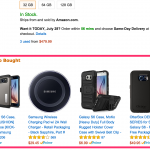 Recommender systems are pervasive on most websites today, with their influence on our buying behavior considerable as they guide us towards products that our past buying behavior indicates we might like. Netflix, for instance, famously tapped into the wisdom of the crowd to improve its recommendation engine, with the end result being a system that the company suggests generates around $1 billion per year for them.
Recommender systems are pervasive on most websites today, with their influence on our buying behavior considerable as they guide us towards products that our past buying behavior indicates we might like. Netflix, for instance, famously tapped into the wisdom of the crowd to improve its recommendation engine, with the end result being a system that the company suggests generates around $1 billion per year for them.
Research from China’s Jiangxi University of Finance and Economics explores whether such systems are positive for end-users, however. The researchers analyzed previous studies on the topic before building a model that shows how our preferences influence our purchase decisions, and also the role AI recommendation systems play.
An information cocoon
The researchers were especially interested in examining the so-called “information cocoon” that emerges when we’re faced with a lot of information online, as this can make us blind to that which we don’t wish to see.
The researchers conducted a couple of experiments on the Taobao and Jingdong shopping platforms. The experiments revealed that online recommendation systems can exacerbate the information cocoon effect. In other words, people already tend to see what they want to see, and the recommender systems then made that worse because it recommended content based upon these preferences. This in turn made the users’ purchasing decisions worse.
“As with many other new technologies, AI recommendation is a source of unintended consequences,” the researchers say. “Our findings have important implications for consumers, particularly in the e-commerce industry—if they want to take independent purchasing decisions, they need to avoid the overwhelming influence of AI recommender tools.”